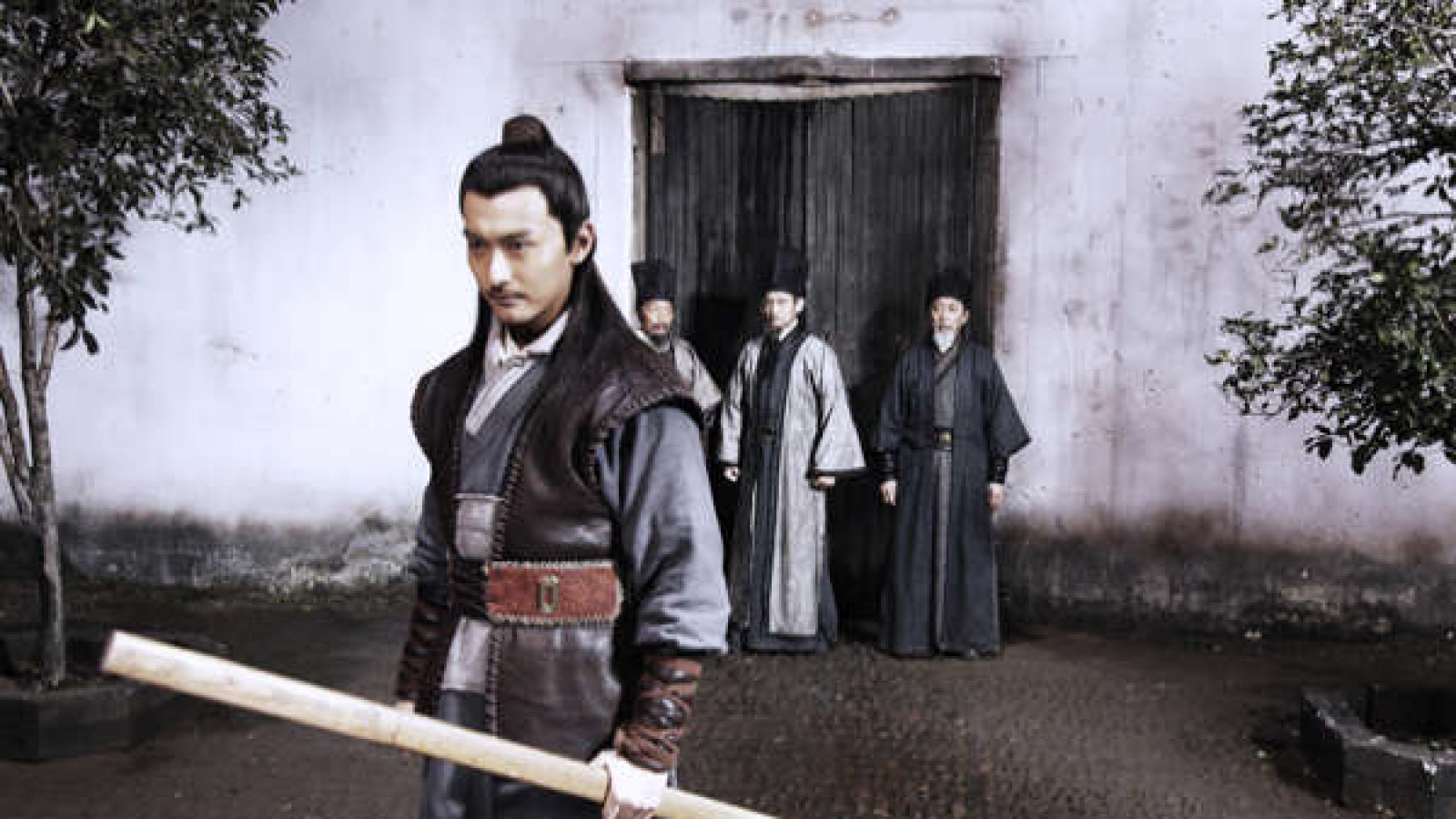The Sword Identity - Wo kou de zong ji

Simultaneously embodying the true spirit of martial arts and satirizing it, this deadpan comedy also sports some of the most original and realistic action choreography of the past 20 years. The directorial debut of martial arts novelist Xu Haofeng (who also wrote the script for Wong Kar-wai’s upcoming Ip Man movie, The Grandmasters), The Sword Identity is vexing, perplexing, but also a whole lot of fun, both for martial arts purists and the people who hate them.
The recently deceased General came up with a new sword technique to fight the Japanese pirates plaguing the coast, and his two students are determined to preserve it by setting up their own martial arts school—which means they have to come to town and fight the heads of the other four schools for the right to establish a fifth. The head of the four schools, Ma Yun, mistakes their long swords for Japanese katanas, and he captures and tortures them, accusing them of being pirates themselves. Song Yang, the younger of the two, escapes, and raises holy hell, conducting a guerrilla campaign against the local militia with the help of his considerable skills and one tough hooker.
Xu Haofeng based this movie on his own book, edited it, and did the action choreography, and his unique vision of martial arts as a way of life equal parts serious, silly, and sublime is balanced by the presence of Yu Chenghui, playing the emo martial arts hermit Qiu Dongyue, who comes down from his exile in the mountains to try to capture Song Yang. Born in 1939, Master Yu is one of China’s most famous wushu coaches, and he had major roles in the three Shaolin Temple movies that launched Jet Li’s career back in the early 80’s. Now aged 72 and possessed of an intense natural gravitas, he moves with the grace of a man for whom the martial arts are at the core of his being. And yet he’s vain, as melodramatic as a teenager, and as conceited, in his own quiet way, as a diva. He’s a bundle of contradictions, like a Japanese sword that isn’t a Japanese sword, and a martial arts movie that’s a drama, a comedy, and a philosophical treatise all at the same time.






